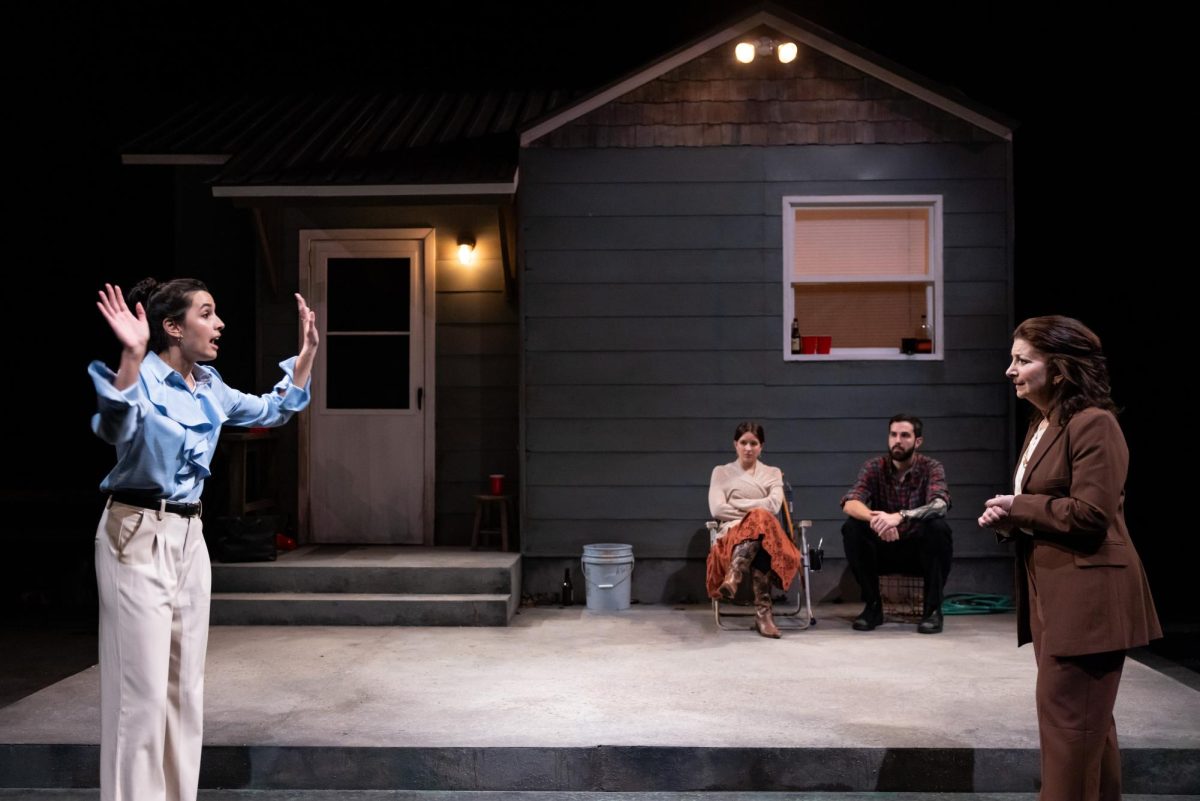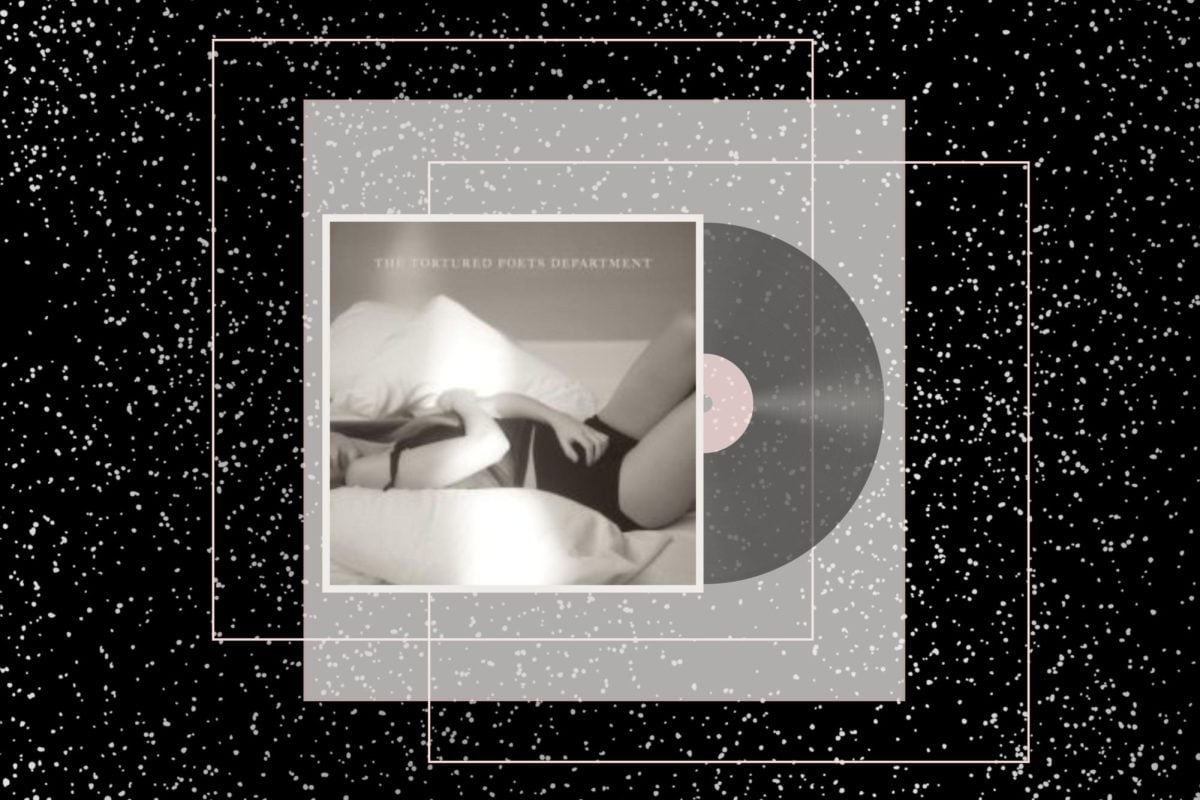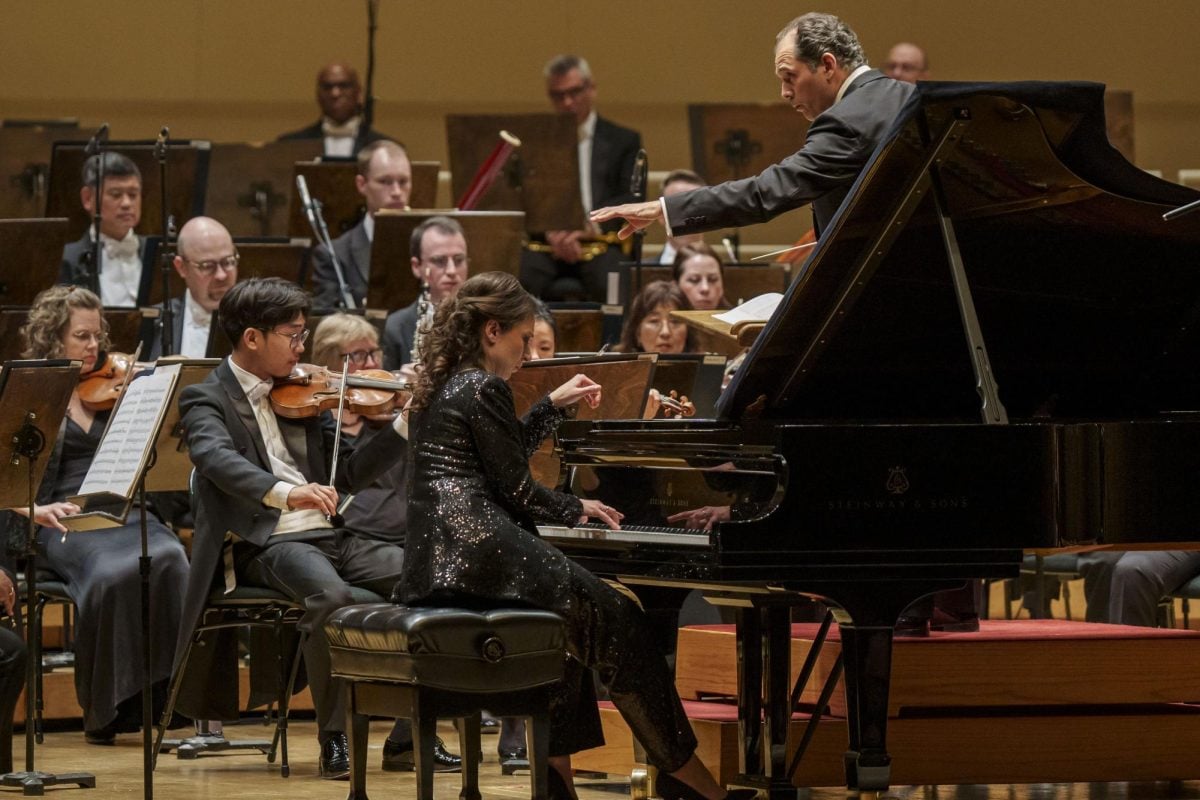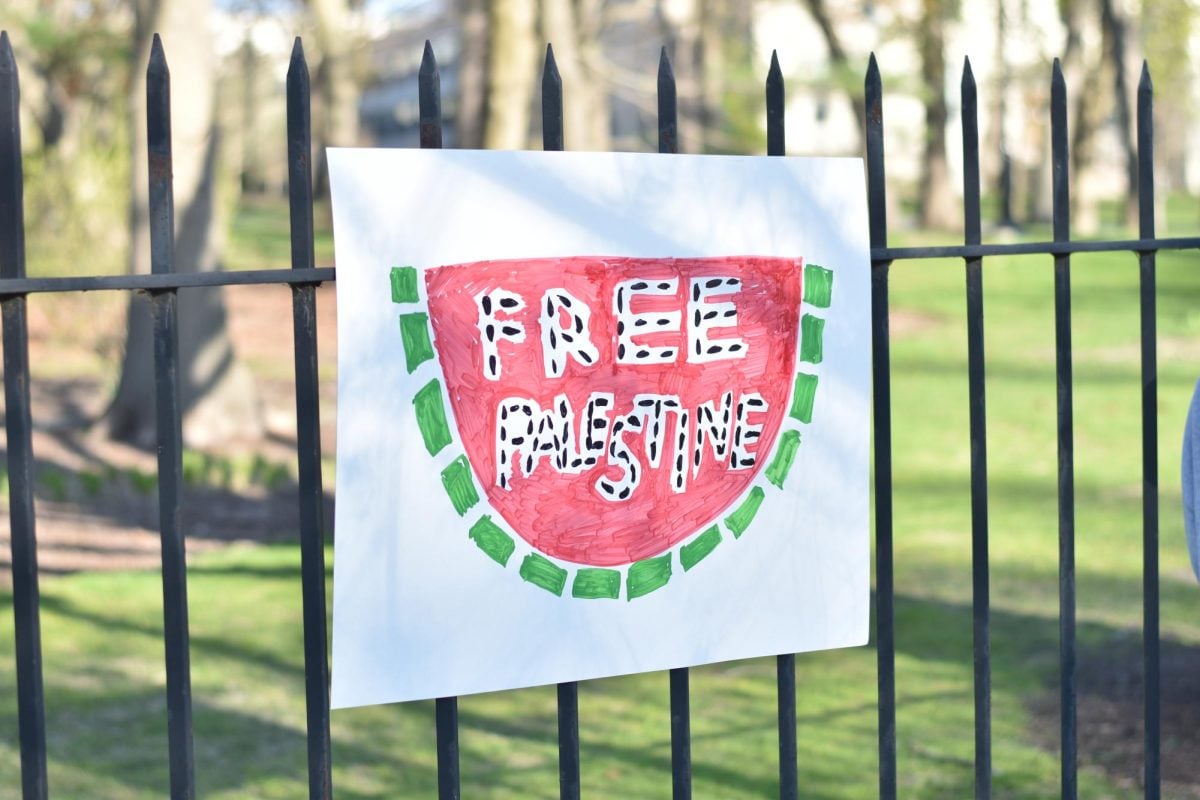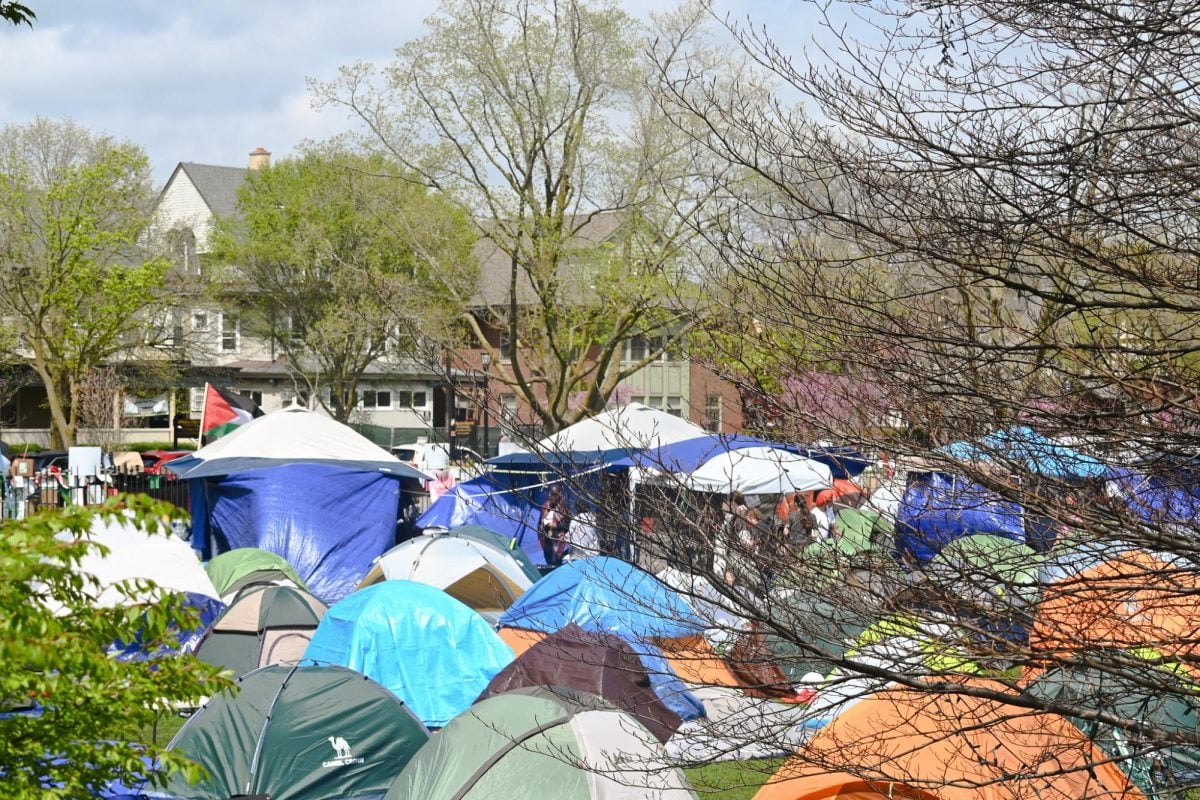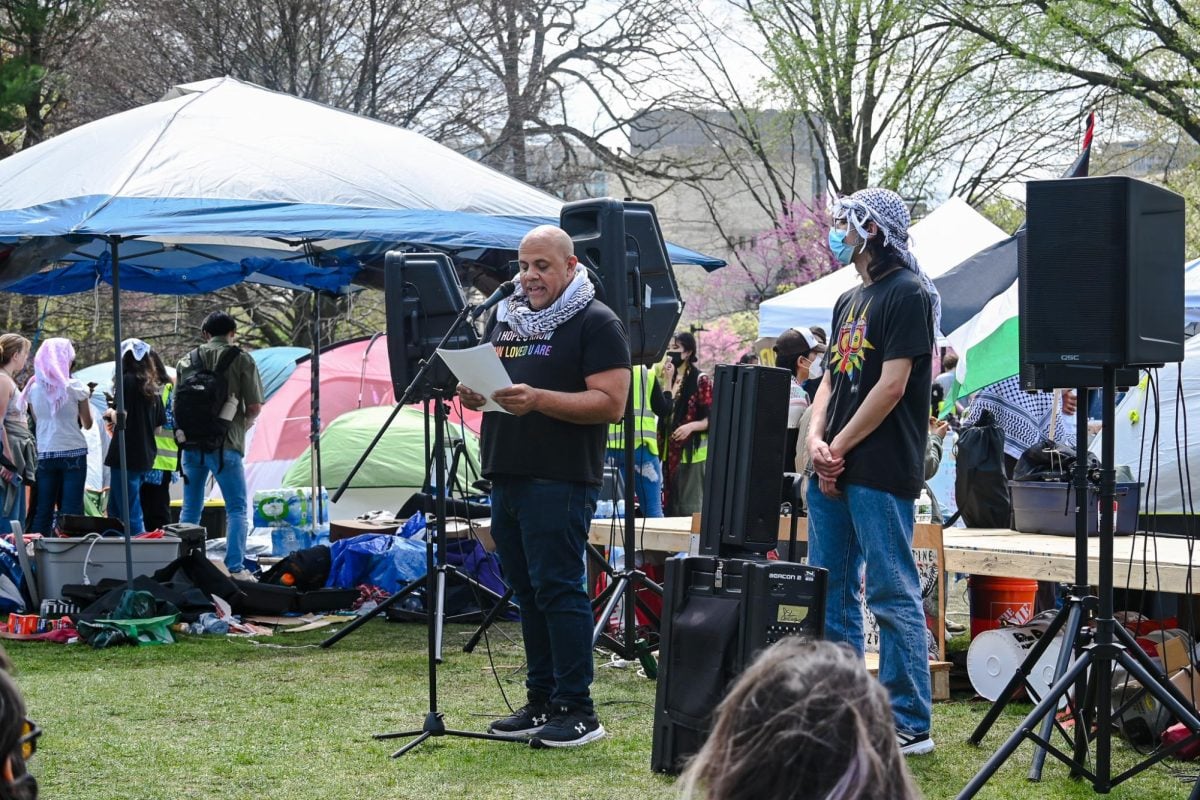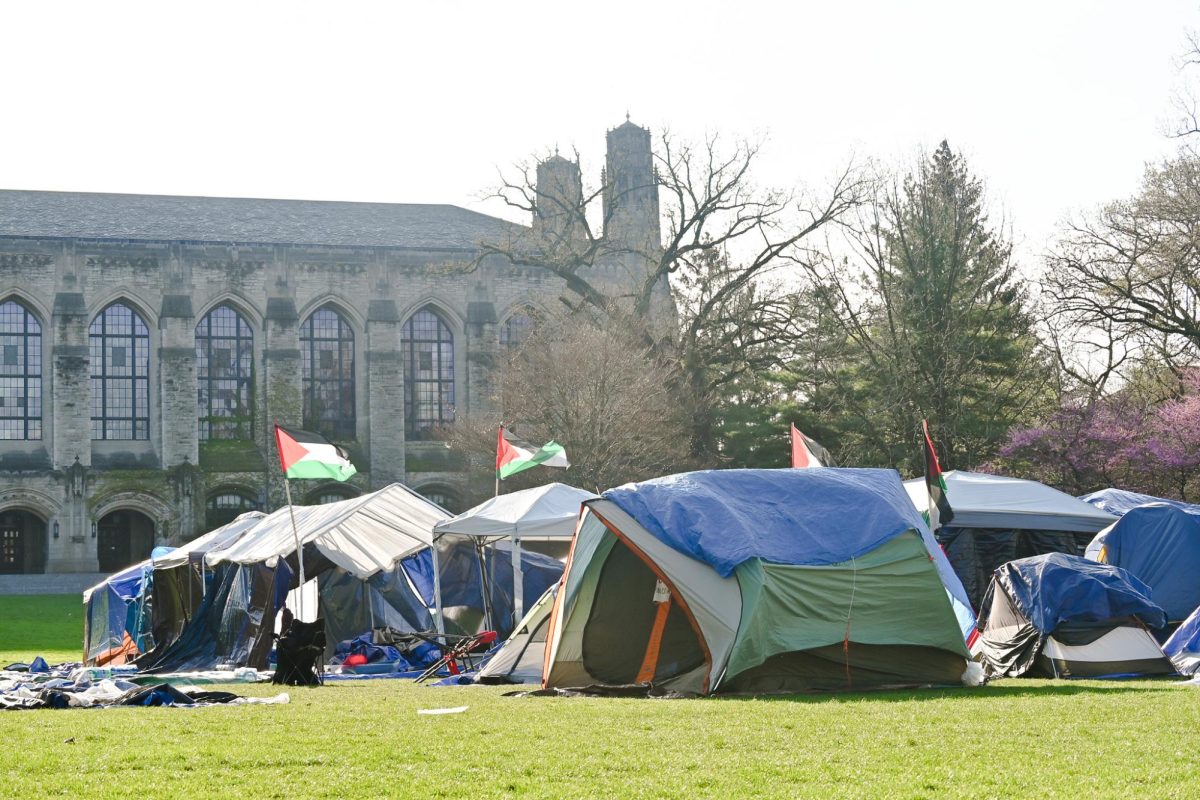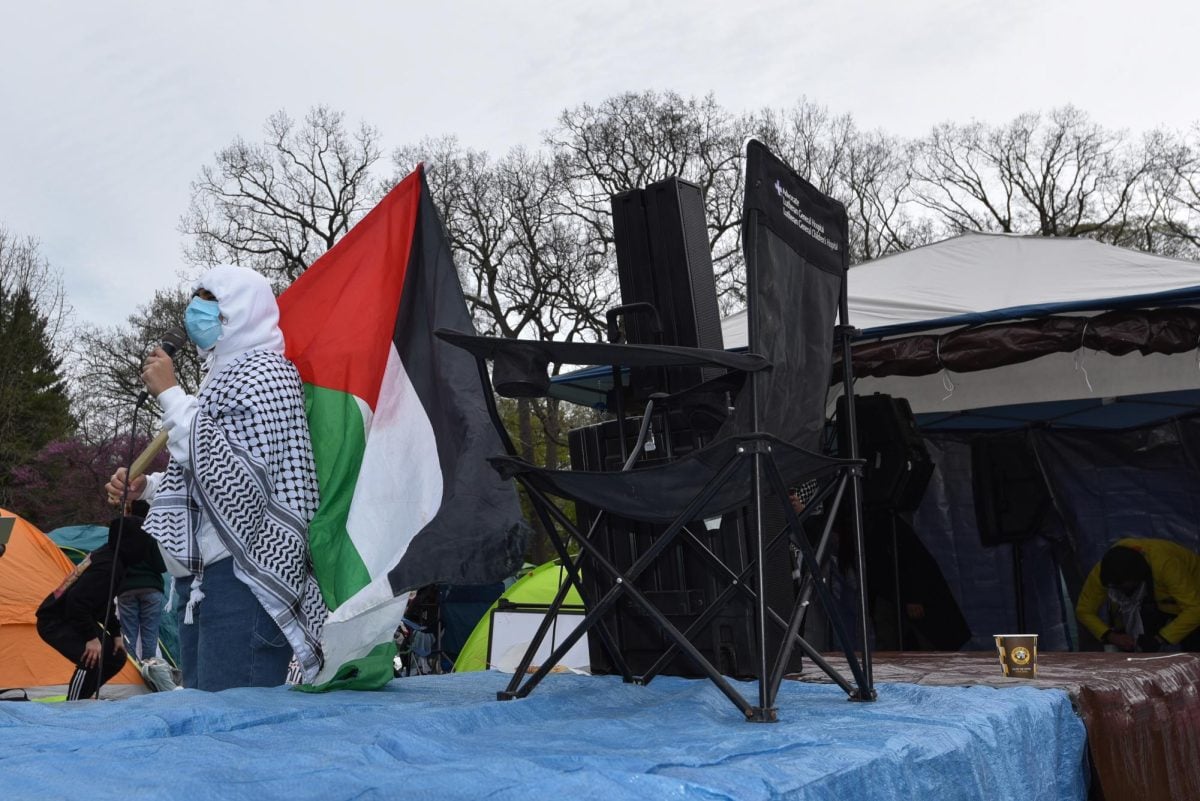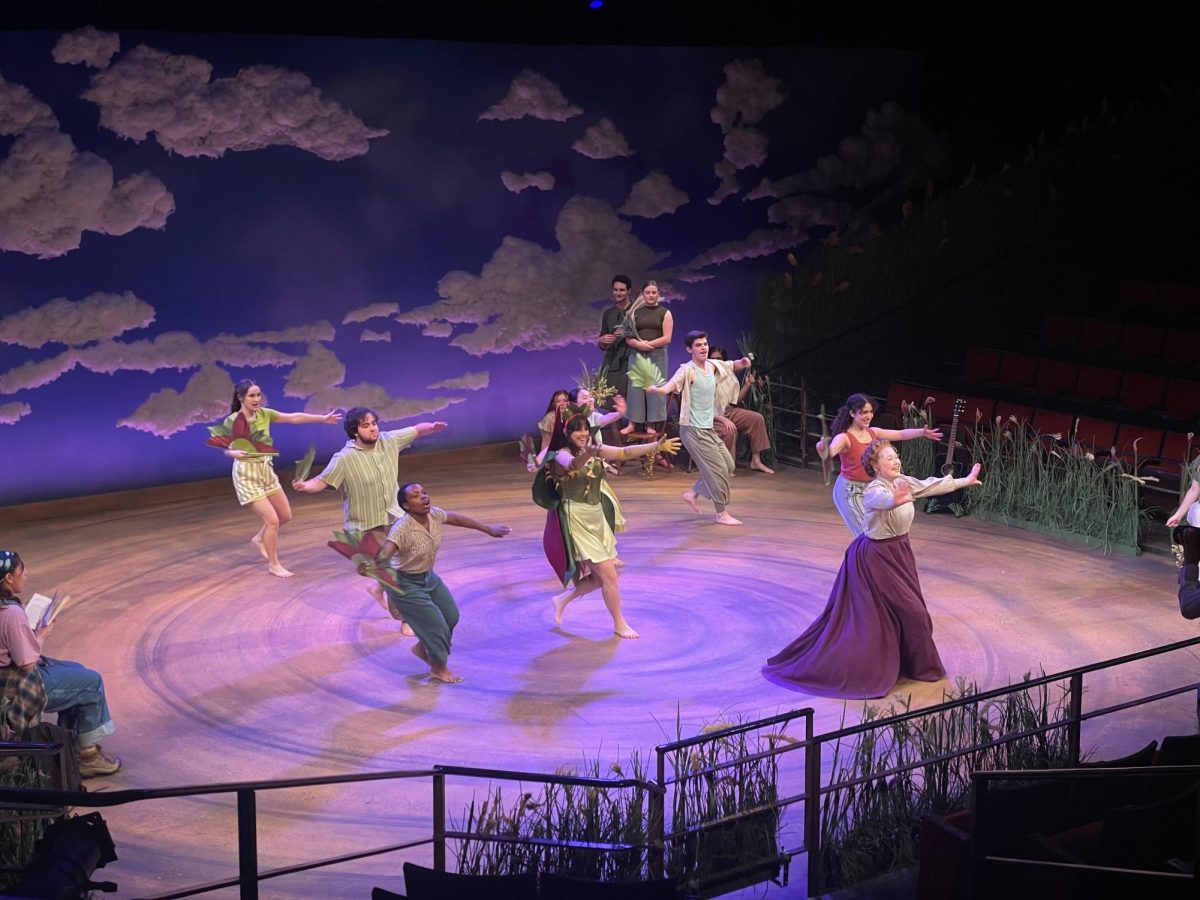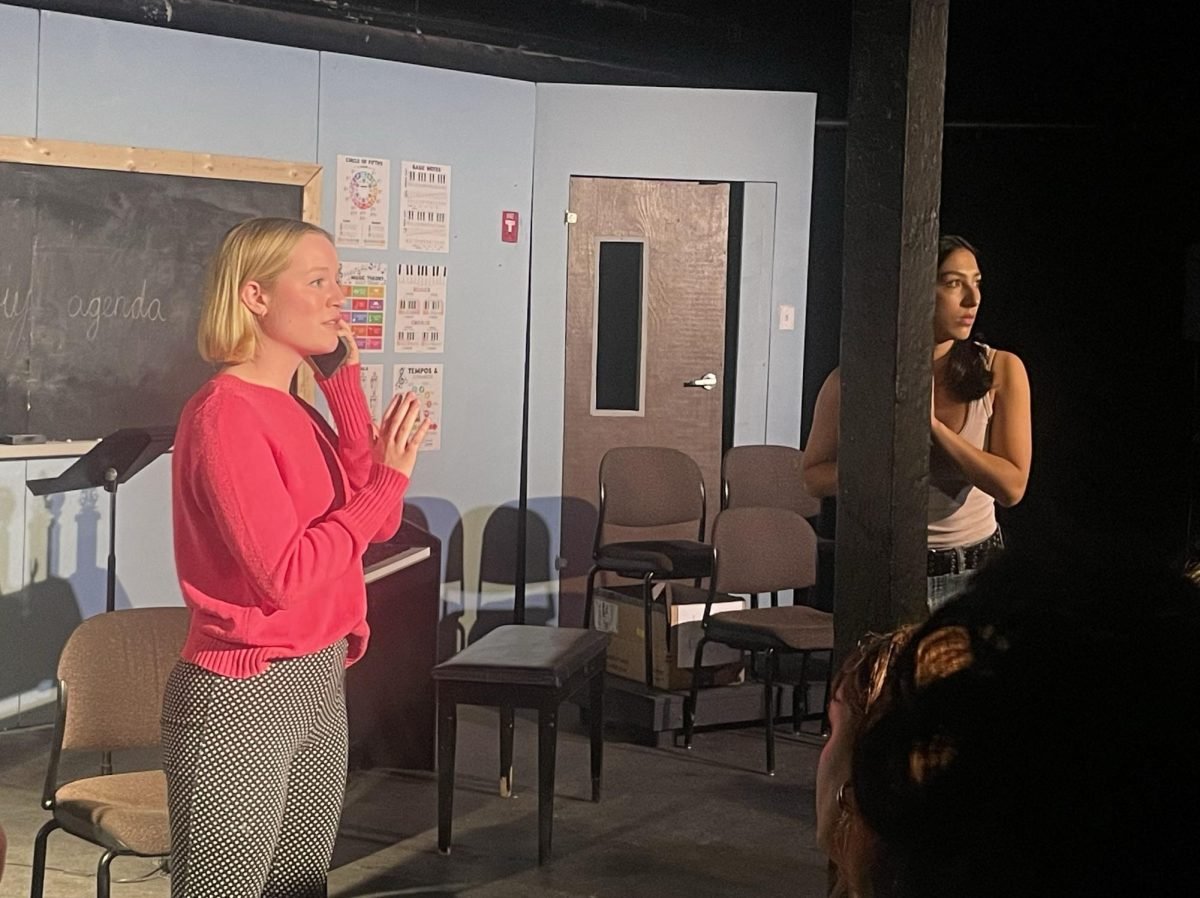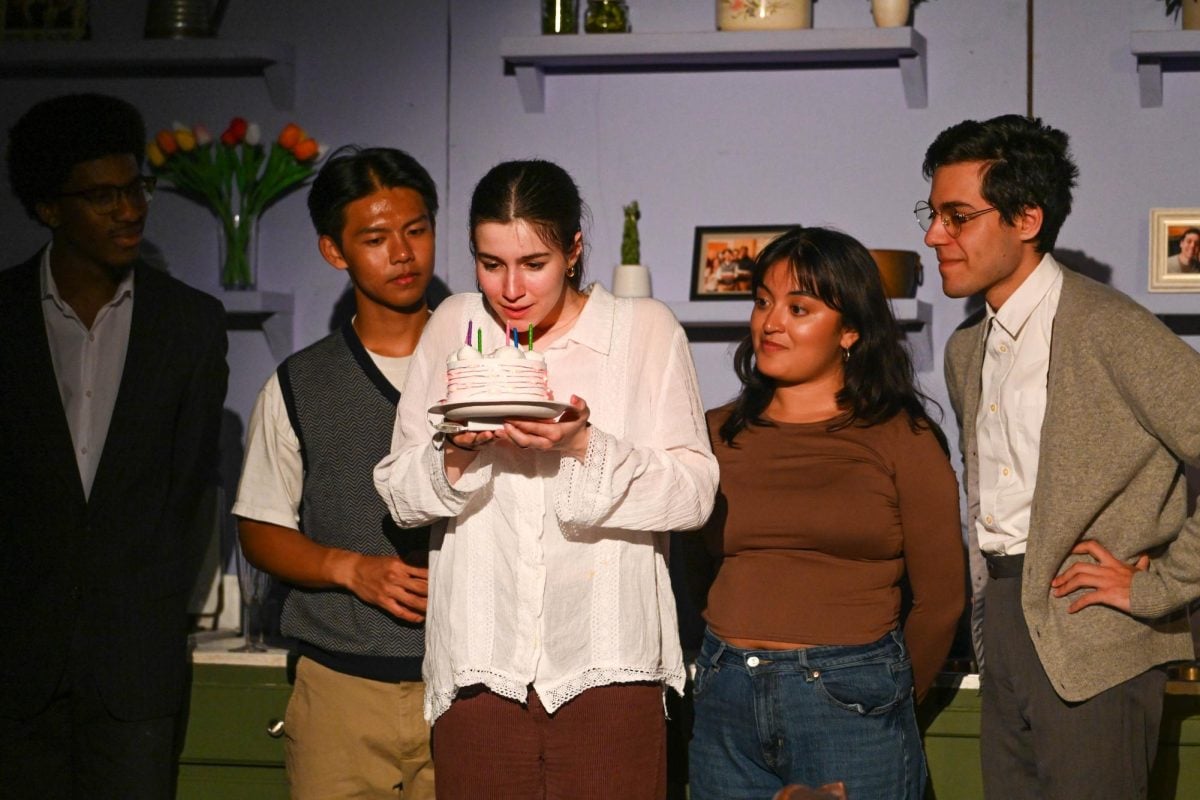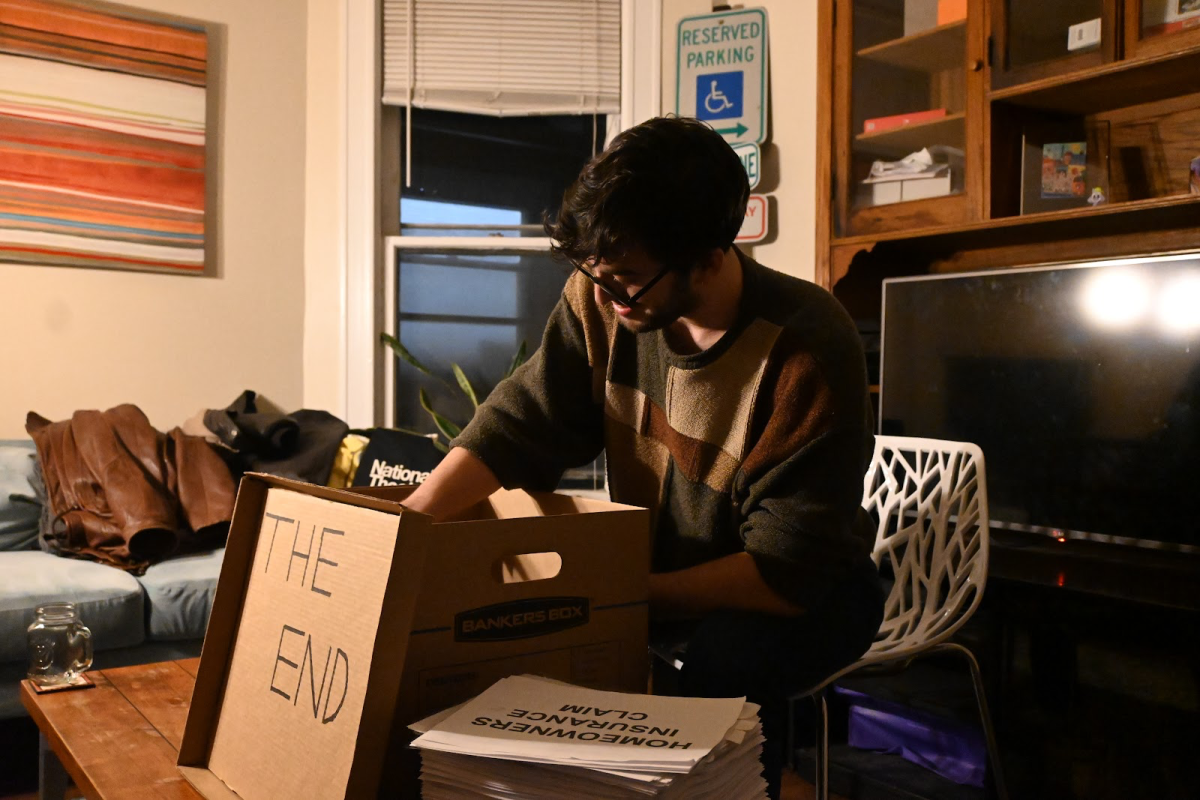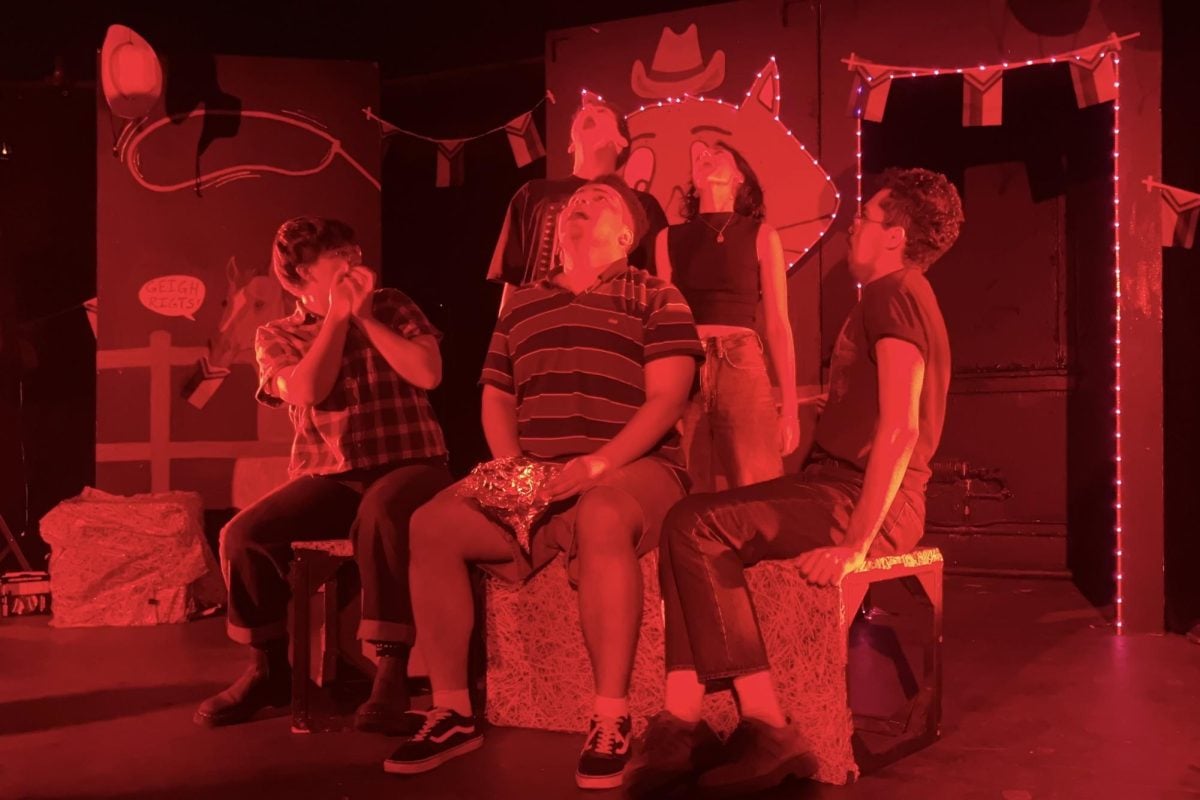Will Arbery’s “Heroes of the Fourth Turning” is the type of play that leaves you quietly unraveled. It’s almost painful to conjure words of reflection.
Right now, I find myself in the same state as I was after the Wirtz production’s final dress rehearsal on Thursday: grasping at air for words to aptly express my thoughts. Many productions have left a lasting impression on me, but “Heroes of the Fourth Turning” uniquely burrows itself within the body and soul.
The play starts with a prolonged moment of silence. A bearded man, who we come to know as Justin (Matt Martin, The Graduate School ‘22), sits on the porch of a small house. He stares out into the distance with an unsettling intensity, slowly aiming a rifle. Already, you are put on edge. What is the threat we cannot see? He shoots, walks offstage, then returns dragging a bleeding deer.
The anticipation of a looming threat lingers for the audience and the main characters — a group of college friends who reunite in their Catholic college town in Wyoming seven years after graduation. All are religious conservatives, yet drastically different from each other.
Justin, the oldest of the bunch, is a former Marine and born-again Christian. Kevin (Communication sophomore Kason Chesky) is an alcoholic with a forgettable job and dreams of having a girlfriend. Teresa (Communication senior Sophia Talwalkar) is a stalwart of the modern far-right movement and writes for a conservative blog. Emily (Communication senior Maggie McKenna) volunteers for a pro-life women’s center and suffers from chronic pain.
As the night progresses, their beliefs on abortion, religion and lifestyle clash. Teresa rhapsodizes about an upcoming war — cultural and potentially physical. This is not her own theory but an echo of the Strauss-Howe generational theory, a cyclical and archetype-based interpretation of historical events. According to this theory, society is in the midst of a crisis, and millennials must rise as heroes to fight against the evils of society.
Some may consider the play to be an exercise of empathy –– especially for the relatively liberal Northwestern audience. As a Black viewer, my relationship to the characters felt inherently oppositional, even more so than it might for a non-conservative white viewer.
However, extended empathy is not Arbery’s goal. In the program note for the play’s off-Broadway production, he wrote, “I’m not asking you to empathize with these characters. I’m representing their positions, with a goal of impartiality. You can do what you want with that access.”
And as such, no one character rises above as the victor in their lengthy debate. Even Teresa, a brash and merciless debater, is humbled when Gina (theatre Prof. Gail Shapiro), Emily’s mother and the newly inaugurated president of their college, enters the conversation.
After this review is published, I suspect that there will be things I wish I wrote, and countless more things that I still won’t know how to express. The beauty of Arbery’s writing is his embrace of discomfort and loose ends. The complex questions he poses cannot be answered, much less completely understood, in one sitting.
Email: [email protected]
Twitter: @jahariia
Related Stories:
—‘creating small thunder’ brings queer, rural story to Northwestern opera
—‘How To Defend Yourself’ explores empowerment in violent world with Spectrum Theatre Company

